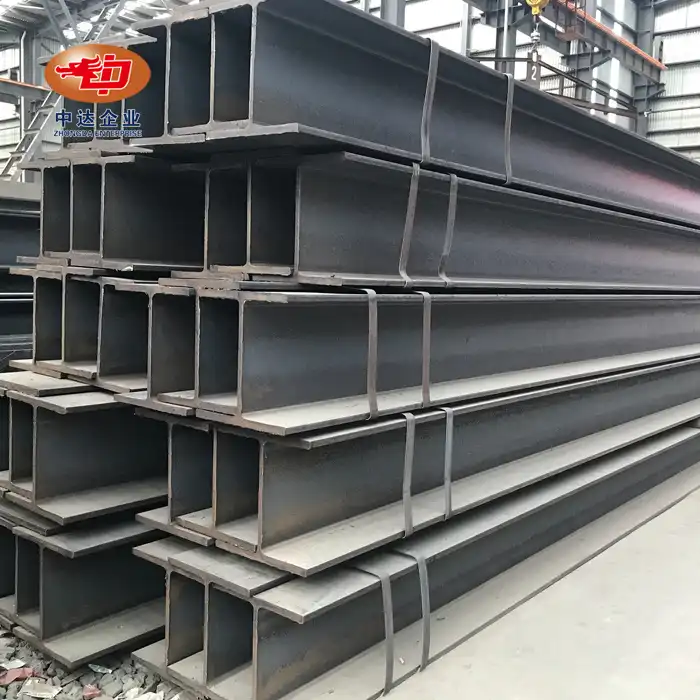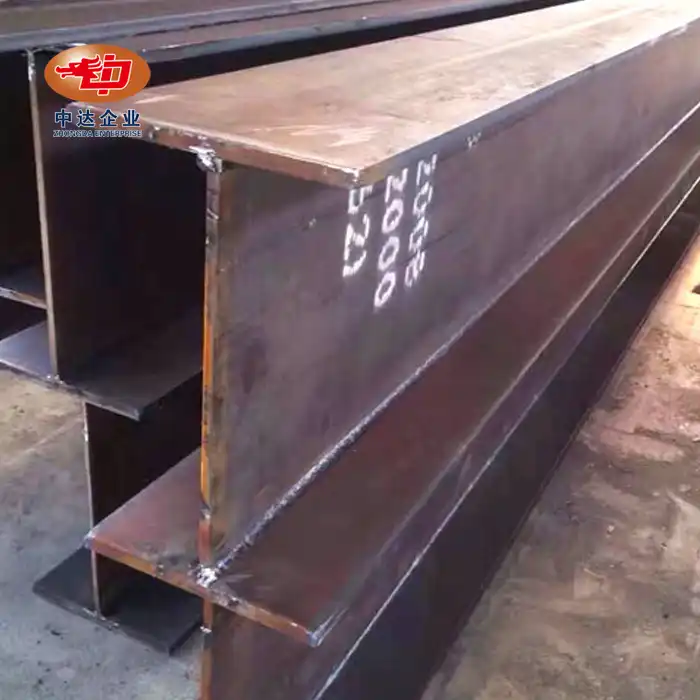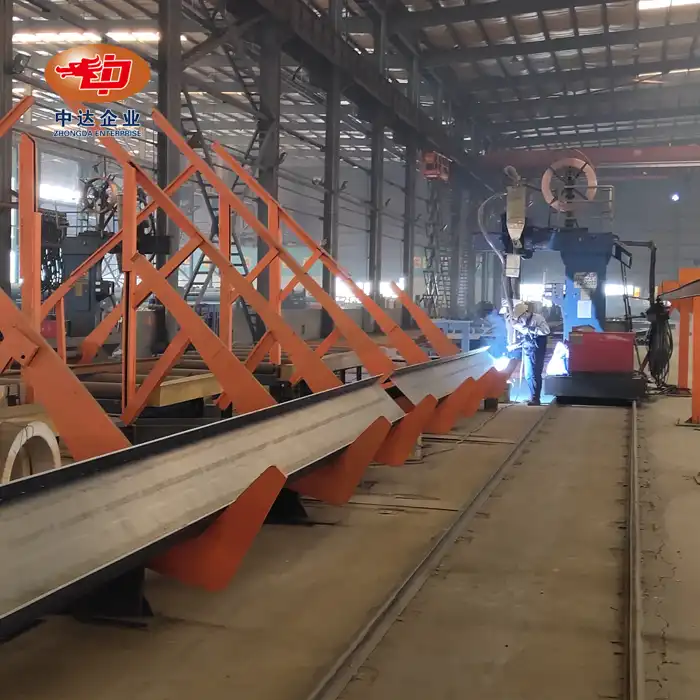Understanding the Basics: Steel Truss Beam and I Beam
What is a Steel Truss Beam?
A steel truss beam is a structural element composed of interconnected triangular units. These beams are crafted from high-strength materials like Q420D steel, featuring H-shaped upper and lower chords with web members made of round pipes or angle steel. This configuration allows for optimal load distribution across large spans, making them incredibly efficient for supporting heavy loads over considerable distances.
What is an I Beam?
I beams, also known as H beams or wide flange beams, are structural support members with an I-shaped cross-section. They consist of two horizontal elements (flanges) connected by a vertical component (web). I beams are widely used in construction due to their simplicity and effectiveness in bearing loads along their length.
Key Differences in Structure and Function
The primary difference lies in their design and load-bearing mechanism. Steel truss beams distribute loads through a network of interconnected members, allowing them to span greater distances with less material. I beams, conversely, rely on their shape to resist bending and shear stresses, making them more suitable for shorter spans and concentrated loads.
Comparing Performance: Steel Truss Beam vs I Beam
Load-Bearing Capacity
Steel truss beams, especially those engineered by reputable manufacturers like Zhongda Steel, provide exceptional load-bearing performance for demanding structural applications. Their open web design allows for efficient weight distribution and reduced material usage without compromising strength. Through the application of advanced Finite Element Analysis (FEA), truss systems can be optimized for specific loads and structural conditions, increasing performance by up to 25% over conventional designs. This superior capacity makes steel truss beams a preferred option for large-scale infrastructure, industrial buildings, and facilities requiring enhanced strength across long spans or under heavy dynamic loads.
Span Capabilities
One of the key advantages of long-span steel truss beams is their ability to cover significant distances - typically between 20 to 80 meters - without the need for intermediate supports. This eliminates the need for interior columns, allowing for open and unobstructed floor plans in structures such as exhibition halls, warehouses, aircraft hangars, and industrial plants. In contrast, I beams are limited by their structural depth-to-span ratio, becoming impractical or overly heavy as span lengths increase. For large-scale applications requiring uninterrupted space and efficient structural integrity, steel truss beams offer a more effective and scalable solution.

Versatility and Customization
Steel truss beams offer unmatched design flexibility, making them an ideal choice for projects with unique architectural or structural requirements. Their modular, open-web configuration allows for integration into various geometric forms, including curved, pitched, or triangular trusses. These options are particularly useful in modern stadiums, airport terminals, and complex roof systems, where both aesthetics and structural efficiency are crucial. Truss beams can also accommodate utilities such as HVAC and piping within their geometry. Zhongda Steel provides tailored engineering services to meet project-specific demands, helping architects and engineers realize innovative structural visions with confidence.
Making the Right Choice for Your Project
Factors to Consider
When choosing between steel truss beams and I beams, several key factors must be evaluated to ensure structural and economic efficiency. These include the required span length, as truss beams are better for longer spans, while I beams work well with shorter spans. Load-bearing capacity and distribution patterns also influence selection. Architectural constraints - such as desired ceiling height or design aesthetics - must be considered, along with budget limitations and installation complexity. Additionally, the potential for future modifications or expansions should be factored in, as some beam types offer more flexibility in adapting to changing needs.
Best Applications for Steel Truss Beams
Steel truss beams are ideal for structures requiring long spans and open interiors without obstructive columns. Their lightweight yet high-strength design makes them perfect for large-scale commercial and industrial applications. Common uses include warehouses, aircraft hangars, exhibition centers, and stadiums, where maximizing usable floor space is critical. They are also widely employed in bridge construction and public infrastructure due to their ability to handle heavy loads over extended distances. Steel trusses support architectural creativity and are often integrated into complex roof systems or long-span support frameworks in airports and transit terminals.

Best Applications for I Beams
I beams are best suited for projects with relatively shorter spans or where vertical space efficiency is a priority. Their straightforward shape and ease of fabrication make them popular in residential construction, particularly for floor joists and roof supports. They are also widely used in low- to mid-rise commercial buildings and structures requiring uniform load-bearing performance. In applications where minimizing beam depth is essential - such as buildings with tight floor-to-floor height restrictions - I beams provide a compact yet strong solution. Their versatility and cost-effectiveness make them a go-to choice for smaller-scale structural frameworks.
Conclusion
Choosing between steel truss beams and I beams depends on your project's specific requirements. For long spans, heavy loads, and architectural flexibility, steel truss beams, especially those engineered by industry leaders like Zhongda Steel, offer unparalleled advantages. Their superior load-bearing capacity, customization options, and ability to create vast, open spaces make them the preferred choice for many modern construction projects. However, for shorter spans and simpler structural needs, I beams remain a practical and efficient solution.
Contact Us
Ready to elevate your construction project with cutting-edge steel truss beam technology? Trust Zhongda Steel for unmatched quality, innovative designs, and comprehensive support. Our long-span steel truss beams offer 25% improved load-bearing capacity and customizable solutions for your most challenging projects. Contact us at Ava@zd-steels.com to discover how our expertise can bring your architectural vision to life.














